4 Ways to Motivate Gig Workers
TABLE OF CONTENTS
Finding new and creative ways to motivate workforces has always been a challenge for employers. Motivating gig workers, however, requires a whole new playbook.
The global gig economy is predicted to be worth $350 billion by the end of 2021, but with new on-demand companies popping up everyday and vying for gig workers’ attention, the challenge is no longer just acquiring freelance talent, but keeping them motivated to stay on your platform.
Here are some simple, practical steps you can take to better motivate your 1099 workforce.
The benefits of motivating gig employees
Companies providing on-demand services are no longer competing solely for customers, but also for the ‘employees’ that will help them to meet those customers’ demands. The gig economy is notorious for its high churn rates - some companies report a staggering churn rate of 500% a year - with people hopping from platform to platform in the hope of increasing their earnings. In such a fast-moving climate, businesses must learn how to keep freelance employees engaged if they want to avoid losing the workers they spent crucial time and money onboarding.
It’s not just about saving costs, however. Motivating gig workers to stay on your platform and continue to pick up gigs in the long term is also important in fostering a sense of loyalty and connection to your business. Freelancers who understand how you work and believe in what you stand for are more likely to embody your values and act as advocates for your brand, ultimately providing a better customer experience and maximizing their earning potential.
“Most of the competition now is not so much for the customer, it is much more for the employee. The reality is that the more employees you bring, the more drivers you have on the road, the faster your response time is between customers. The more customers you bring, the more employees you bring.” - Gad Allon, Wharton Professor of Operations, Information and Decisions

Methods for motivating gig workers
1. Optimize your payment methods
One of the many stereotypes surrounding gig work is that there is a lack of financial security. Research shows that around 45% of freelancers who rely on gig work as a primary source of income are anxious about their finances, and the lack of worker protection and guaranteed paychecks in the sector - though steadily improving - can contribute to concerns around income.
Making sure your gig workers are paid quickly and flexibly will immediately highlight the benefits of working for your company, and also shows a deeper understanding of their needs. In fact, a 2021 report found that 40% of gig workers would be motivated to work more often for a company if they offered faster and more regular pay, preferring to be paid weekly (45%) or even daily (36%).
Investing in a reliable payments platform that will ensure faster and more efficient payment of your gig workers has never been more important. Choosing a platform which is easily accessible and offers flexible payout options will be even more important in engaging fast-paced, tech savvy freelancers.
What is eduMe?
eduMe is a mobile training tool used by deskless workforces around the world. Our customers include Uber, Deliveroo, Gorillas, gopuff & Wolt.
Put simply - how easy it is to use and how effective it is. Faster onboarding, quicker time to productivity and a safer workforce are all benefits our customers see. Take a look at an explanation video here.
2. Offer tangible incentives
Benefits are no longer exclusive to full time employees; many companies have also begun offering their freelance workers financial incentives in order to keep them engaged and motivated.
When starting to think about employee incentives, it’s firstly important to understand your workers and what’s most important to them. While financial compensation is important to any worker, there are also many other factors which are taken into account when considering an opportunity.
At a time when health and security is at the front of our minds, offering freelancers access to healthcare insurance and pension plans with your company communicates your commitment to their wellbeing and an appreciation for the contribution they make to your business. On-demand food delivery service GrubHub offers its drivers a range of discounts and opportunities upon signing up to its platform, including financial advice, wellbeing services and discounted healthcare plans.
Sign-up and employee referral bonuses are a go-to method for incentivizing workers to stay on your platform and also invite their peers to do the same, but incorporating incentive ‘milestones’ can be even more effective. Offering gig workers bonuses when they reach impactful milestones such as achieving a 5-star rating instills a sense of development and personal growth in an industry that can often lack career progression.
For example, Uber Pro is a loyalty program used by Uber to incentivize repeat high performance through gamification. Drivers earn points from every trip they complete, eventually unlocking different levels and providing a trajectory of success. Utilizing a strategy like this one not only encourages participation, but also taps into both extrinsic and intrinsic motivation; drivers want to reap the rewards of their success, but also enjoy the personal satisfaction of completing another level.
Rewards can be work-specific, such as providing breakdown cover or recognizing top performers with higher earnings, or they can be linked to personal development outside of work. Uber has rewarded its drivers with a number of perks from subsidised gym memberships to tuition fee coverage.
Show that you value high-performing and loyal freelancers, and will recognize their work with tangible rewards.
3. Invite feedback from your freelancers
As Maestro Health’s Jeff Yaniga puts it, “Don’t guess; ask.” The most effective way to motivate your gig workers is to ask what they want from their employer, and what will keep them coming back to you for work.
The gig sector is a diverse collection of individuals with differing motivations and needs; taking the time to understand what your gig workers are looking for in an employer and how they can be better supported is the key to gaining their trust and loyalty.
Gig workers’ status as 1099 contractors can sometimes leave them feeling isolated and voiceless. It’s therefore crucial that companies make an effort to include them in their decision making, and make them feel as though their experiences and opinions matter. This can translate into real results; workers who feel their voice is heard are 4.6 times more motivated to perform their best, and 93% agree that they are more likely to keep accepting work from an employer who shows empathy.
A simple way to gather feedback from and provide a forum for your freelancers is to implement pulse surveys: single-question regular check-ins which keep you updated on how your workforce is feeling without bombarding them with questions and requests. Make sure to utilize a platform that is accessible and mobile-friendly, and show that you take their feedback on board by sharing the results as well as a list of actions that you plan to take.
4. Encourage continuous learning
Having a strong onboarding process is key to getting gig workers set up and ready to start earning on your platform, but pushing them out into the market without continuous support is more likely to result in disengagement.
By implementing continuous learning - ongoing opportunities to gain new skills, knowledge and information - you can motivate workers to keep improving their performance and ultimately boost your workforce’s productivity.
This is where intelligent software can make a big difference. By using a tool that allows you to automate the continuous learning process, workers can instantly receive suggestions for relevant lessons and learning modules based on their activity. Drivers who’ve been inactive for three days can receive a lesson prompt on optimizing their earnings. Workers who receive a lower rating or get issued a complaint can automatically receive a suggestion to complete customer service training.
Incorporating a tool that automates this process for you and maintains a consistent level of engagement via learning will save operations’ teams valuable time, ensuring that every one of your gig workers has the means and motivation to perform better.
Already used by on-demand giants such as Uber, Deliveroo and Gorillas, mobile-learning platform eduMe helps companies to motivate their gig workers through relevant, accessible and engaging learning tools. Our industry-leading software makes continuous learning simple, with automated triggers and bite-sized learning content that is tailored to your workforce’s needs.
Book a free demo below to find out how we can help 👇
Join 10,000+ frontline leaders
Subscribe to ‘Training the Frontline’ and get weekly insights sent straight to your inbox.

